Overcharging at the beginning of the year under the perfect cover of "voluntary" fees is not a new story but is always topical, because in reality theeducation sector has not yet been able to fix the problem at its root. Without an effective solution, parents "can only complain" as more and more contributions appear.
It can be seen that in the statistics of the amount of money to be paid at the beginning of the year, tuition fees occupy a modest position while the additional fees are endless. There are funds for parents, money for modernizing classrooms, money for hygiene support, money for extracurricular activities, club activities... even money for calling for laptops and printers. The more fees, the more burdens weigh on the shoulders of parents, especially for poor families.
Mobilizing social resources voluntarily to invest in improving the quality of education is legitimate. However, breaking the fragile boundary between socializing education and overcharging will erode public trust.
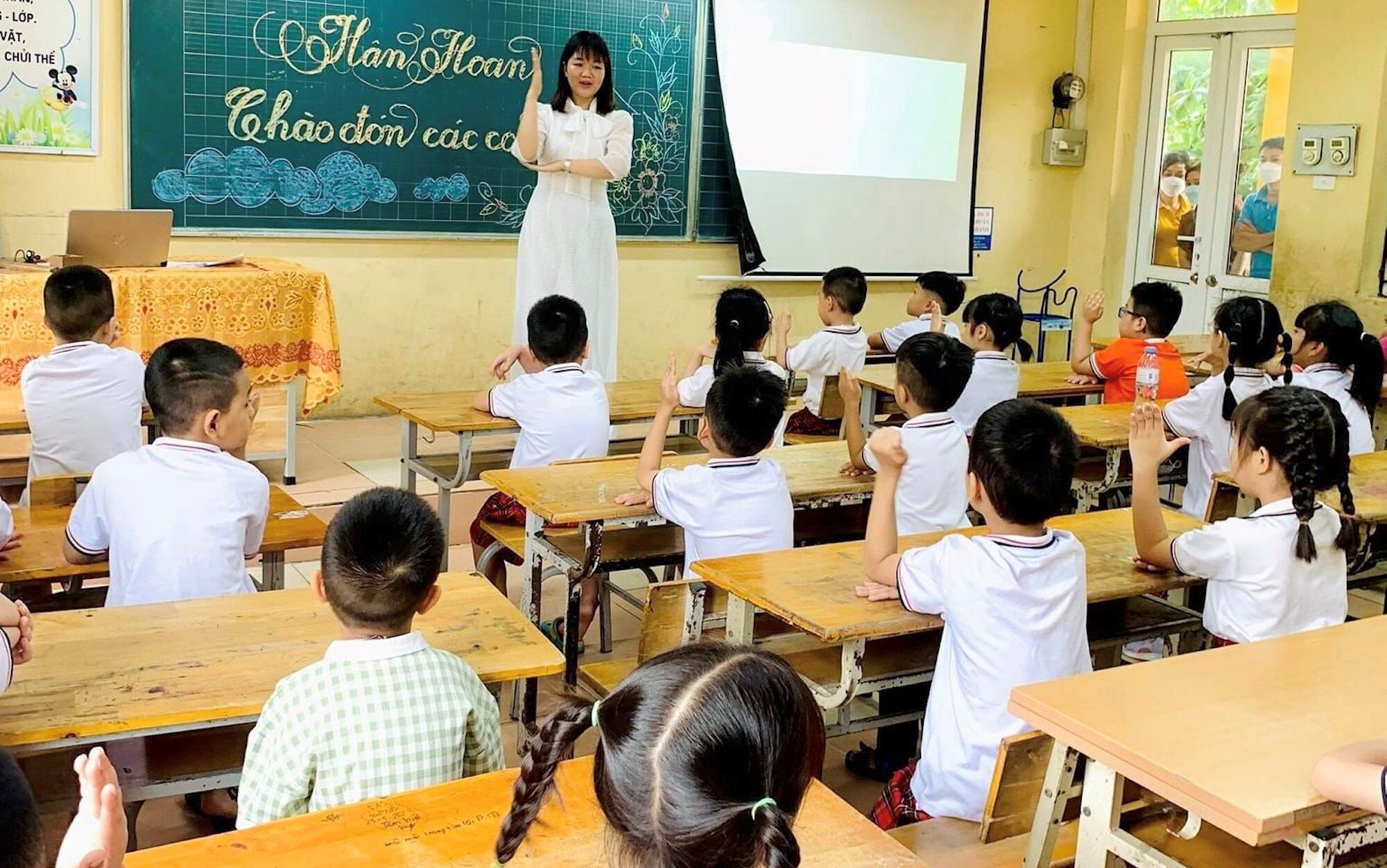
There should be specific mechanisms to prevent overcharging at the beginning of the school year.
How to treat overcharging?
Regarding the story of illegal fees at the beginning of the school year, National Assembly delegate Trinh Thi Tu Anh ( Lam Dong delegation) said that the role of some parent-teacher associations is being abused excessively, becoming an extension of the school. Through the parent-teacher association, some schools have collected illegal fees, causing much public outrage.
In fact, some schools are currently "relying" on the parent-teacher association to mobilize and support contributions to service revenues. In meetings, the parent-teacher association spends very little time reflecting on student education or discussing methods to improve the quality of children's education. On the contrary, the issue of revenue and expenditure management "dominates the airwaves".
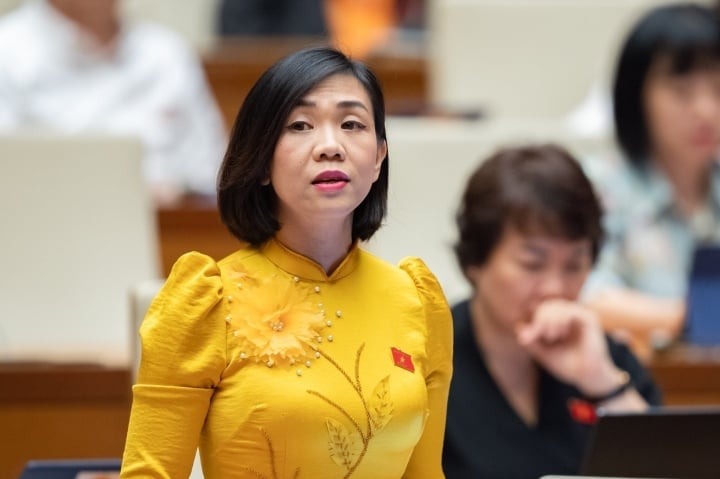
National Assembly Delegate Trinh Thi Tu Anh. (Photo: Quochoi.vn)
Despite the shortcomings, Ms. Tu Anh affirmed that the parent-teacher association should not be abolished because they are the ones who play an important role in connecting the school, teachers and parents in managing and educating students.
Through the parent-teacher association, the school can convey information about improving the quality of education or some essential school activities to all parents in the school and class.
" What happens after we abolish the parent-teacher association? Will this help put an end to overcharging? The answer is no ," she said. To avoid distortions and negative consequences, there needs to be a clear mechanism so that the activities of the parent association do not become the ones organizing and implementing overcharging and illegal fee collection at schools.
National Assembly delegate Trinh Thi Tu Anh raised three issues that need to be tightened if we want to "cure" overcharging. First, socialize education on the principle of voluntariness on the basis of the law, ensuring publicity and transparency. How much schools collect and how specific amounts are allocated need to be clearly and transparently communicated to parents, students and unions.
Second, reorganize the activities and return the actual functions and tasks of the parent-teacher association. The parent-teacher association needs to coordinate with homeroom teachers and subject teachers to organize student education activities; coordinate with homeroom teachers to prepare the content of parent-teacher meetings during the school year.
At the same time, participate in moral education for students, foster and encourage good students, help weak students, encourage students who have dropped out of school to continue studying; help poor students, disabled students and students in other difficult circumstances.
"Do not let the parent-teacher association become a cover for illegal collection of fees by calling for contributions and collecting money, which is not in accordance with its functions and duties as prescribed," said Ms. Tu Anh. She further emphasized that it is necessary to enhance the responsibility of school leaders and to propagate and raise legal awareness for the parent association.
According to the female delegate, when there are signs of violations, not only the principal will be disciplined, but the head of the parents' representative committee will also need to be held accountable. Sometimes the person who "mobilizes" contributions simply thinks that he or she is supporting the children's learning activities. They do not clearly understand what is allowed and what is not allowed to be collected. At the same time, parents also need to understand their rights according to the regulations.
Third, the Ministry of Education and Training needs to have a plan to inspect and examine the implementation or authorize the local Department of Education and Training, especially this work needs to be closely monitored in "hot spots" of overcharging that public opinion reflects.
Need a stronger punishment mechanism
Lawyer Nong Minh Chien (Hanoi Bar Association) emphasized the role of the board of directors and principals in all school activities. The Ministry of Education and Training has issued relevant regulations on the fees that schools are allowed to collect, and at the same time in each locality. The People's Committees of provinces and cities also have detailed regulations on this matter with some fees, so the main responsibility for allowing the situation of overcharging to occur will belong to the school.
"Schools will be fined from 10 to 20 million VND if they collect fees that are against the regulations of competent authorities. School officials may be criminally prosecuted if they make contributions to certain amounts but use them for personal purposes or misappropriate them," said Mr. Chien.
According to lawyer Chien, although there are regulations on handling, to avoid the situation of overcharging continuing, the competent authorities need to increase the level of penalties to be enough of a deterrent, because the above penalties are still relatively low. At the same time, it is necessary to build a public feedback channel so that if overcharging occurs at any school or level, parents and teachers can directly report it with evidence.
Parents also need to be more determined and straightforward in requesting strict financial mechanisms and serious invoices and documents when the class purchases any equipment over 1 million VND. This is also a way to prevent overcharging, Mr. Chien added.
According to Clause 2, Article 4 of Circular 55, the parents' representative board has the following rights:
Decide to convene parent-teacher meetings as prescribed in Article 9 of this Charter (except for the meeting at the beginning of the school year to elect the class's parent-teacher representative committee) after agreeing with the homeroom teacher;
Organize to collect opinions from parents of students in the class about measures to manage student education to make specific recommendations to homeroom teachers and subject teachers about measures to improve the quality of moral education and teaching quality;
Coordinate the organization of extracurricular educational activities, traditional education, cultural, artistic and sports activities to achieve the goal of comprehensive education for students after agreeing with the homeroom teacher.
NHI NHI
Source


![[Photo] Prime Minister Pham Minh Chinh chairs meeting on science and technology development](https://vphoto.vietnam.vn/thumb/1200x675/vietnam/resource/IMAGE/2025/5/17/ae80dd74c384439789b12013c738a045)
![[Photo] Readers line up to visit the photo exhibition and receive a special publication commemorating the 135th birthday of President Ho Chi Minh at Nhan Dan Newspaper](https://vphoto.vietnam.vn/thumb/1200x675/vietnam/resource/IMAGE/2025/5/17/85b3197fc6bd43e6a9ee4db15101005b)



![[Photo] More than 17,000 candidates participate in the 2025 SPT Competency Assessment Test of Hanoi National University of Education](https://vphoto.vietnam.vn/thumb/1200x675/vietnam/resource/IMAGE/2025/5/17/e538d9a1636c407cbb211b314e6303fd)
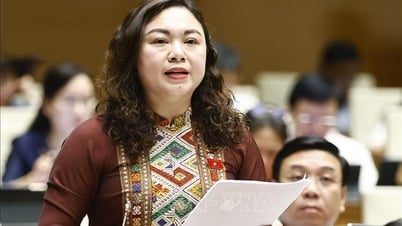

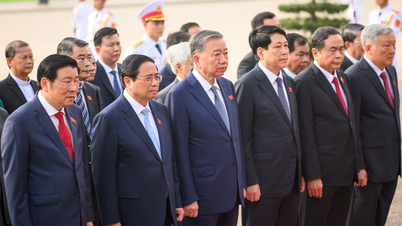








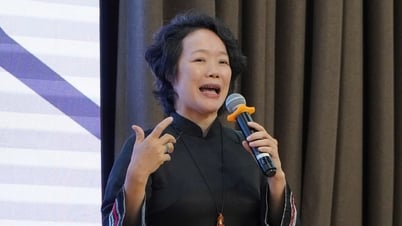
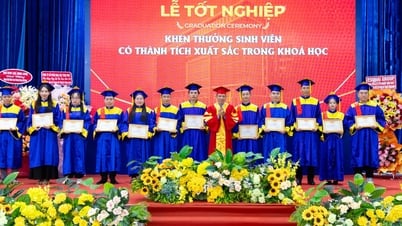


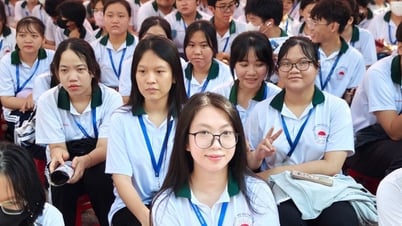


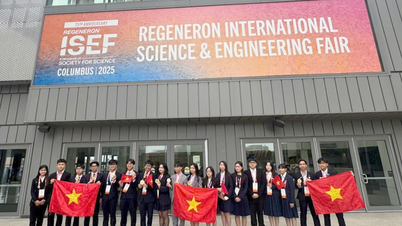







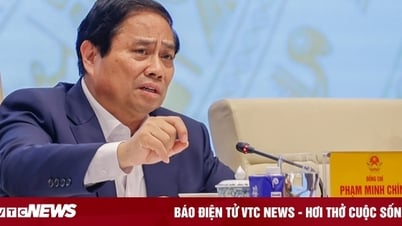


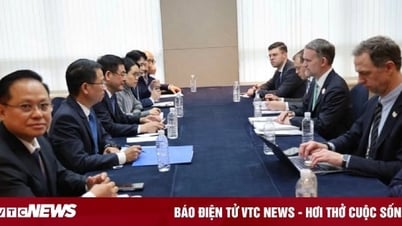
![[Photo] Nearly 3,000 students moved by stories about soldiers](https://vphoto.vietnam.vn/thumb/1200x675/vietnam/resource/IMAGE/2025/5/17/21da57c8241e42438b423eaa37215e0e)



















































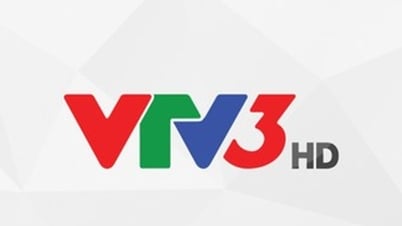
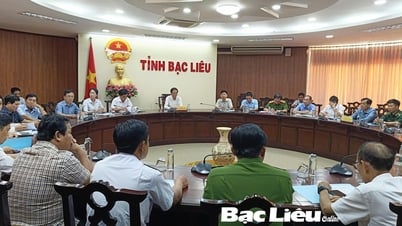


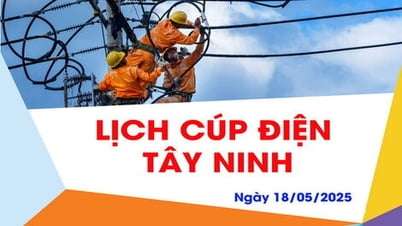













Comment (0)